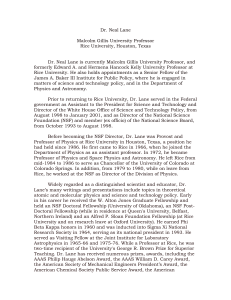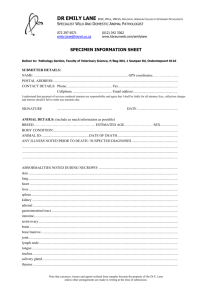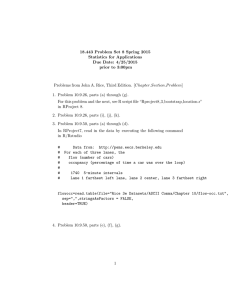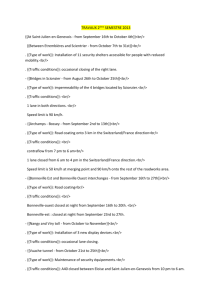Chemistry Department Colloquium Spring 09 Science in the "Obama Era"
advertisement
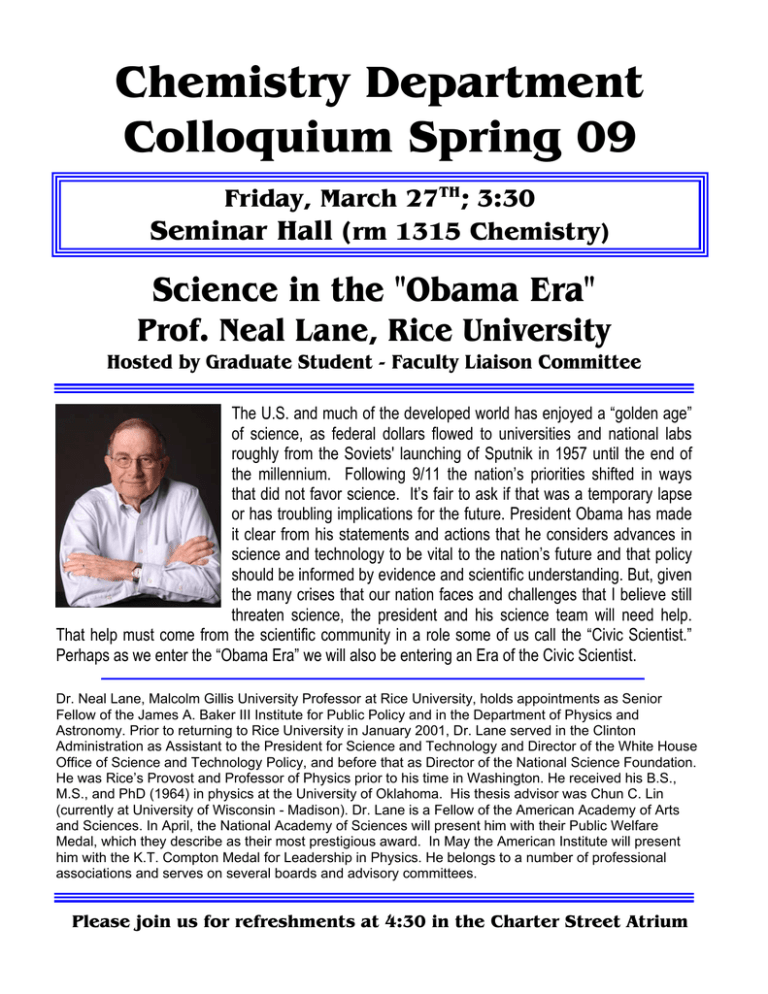
Chemistry Department Colloquium Spring 09 Friday, March 27TH; 3:30 Seminar Hall (rm 1315 Chemistry) Science in the "Obama Era" Prof. Neal Lane, Rice University Hosted by Graduate Student - Faculty Liaison Committee The U.S. and much of the developed world has enjoyed a “golden age” of science, as federal dollars flowed to universities and national labs roughly from the Soviets' launching of Sputnik in 1957 until the end of the millennium. Following 9/11 the nation’s priorities shifted in ways that did not favor science. It’s fair to ask if that was a temporary lapse or has troubling implications for the future. President Obama has made it clear from his statements and actions that he considers advances in science and technology to be vital to the nation’s future and that policy should be informed by evidence and scientific understanding. But, given the many crises that our nation faces and challenges that I believe still threaten science, the president and his science team will need help. That help must come from the scientific community in a role some of us call the “Civic Scientist.” Perhaps as we enter the “Obama Era” we will also be entering an Era of the Civic Scientist. Dr. Neal Lane, Malcolm Gillis University Professor at Rice University, holds appointments as Senior Fellow of the James A. Baker III Institute for Public Policy and in the Department of Physics and Astronomy. Prior to returning to Rice University in January 2001, Dr. Lane served in the Clinton Administration as Assistant to the President for Science and Technology and Director of the White House Office of Science and Technology Policy, and before that as Director of the National Science Foundation. He was Rice’s Provost and Professor of Physics prior to his time in Washington. He received his B.S., M.S., and PhD (1964) in physics at the University of Oklahoma. His thesis advisor was Chun C. Lin (currently at University of Wisconsin - Madison). Dr. Lane is a Fellow of the American Academy of Arts and Sciences. In April, the National Academy of Sciences will present him with their Public Welfare Medal, which they describe as their most prestigious award. In May the American Institute will present him with the K.T. Compton Medal for Leadership in Physics. He belongs to a number of professional associations and serves on several boards and advisory committees. Please join us for refreshments at 4:30 in the Charter Street Atrium
